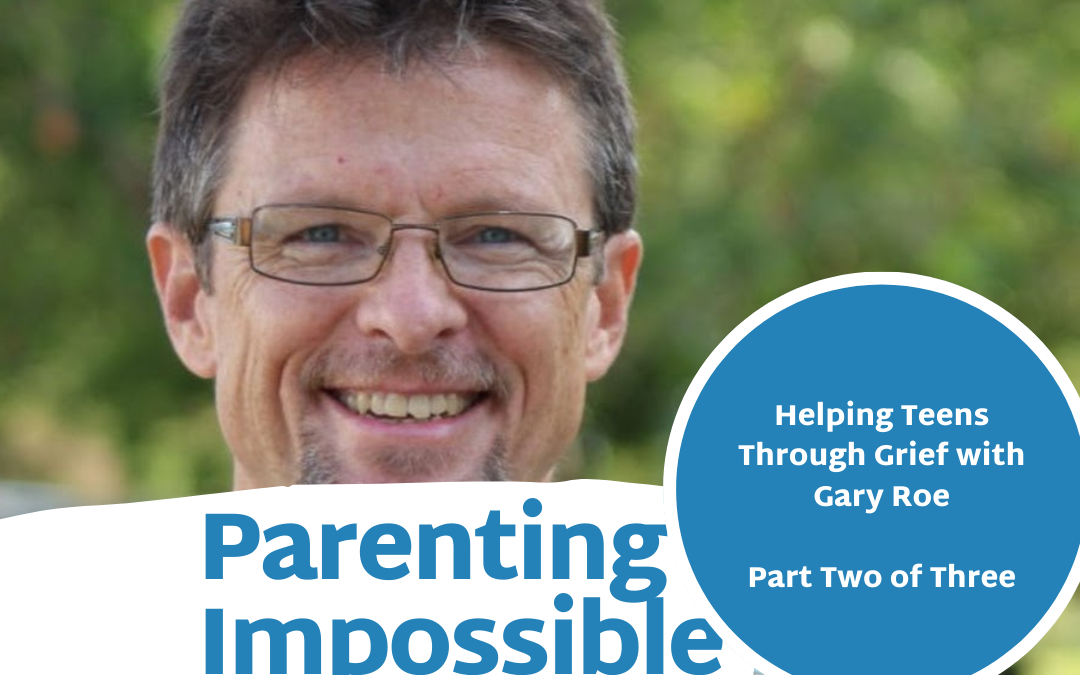COVID-19 has made these last few months challenging, and in Gary Roe’s words, “a grieving disaster.” Without the traditional rituals around goodbyes, this pandemic has made it harder for people, including teens, not to bottle up their sorrow. In this second episode with Gary, he shares his experience with teens and grief and ways that family members and friends can help them.
Grief can be especially difficult for teens, as the adolescent years are formative in shaping the rest of their lives, and teens are often afraid to express their feelings in front of other people. They are still learning how to grieve, and need people to model good grieving habits in front of them—including their parents.
Teens experiencing their first heartbreak, death, or loss may often compartmentalize their pain or avoid being alone with their emotions by spending all of their time on their phone or with friends. The best way parents can help is by modeling healthy grieving behavior, as actions will speak louder than words. However, when you do have conversations with your teen, they will listen to you—even if they pretend that they are not listening—if they respect you and know that you love them for who they are.
There is a reason that the safety instructions on airplanes tell parents to put their own oxygen masks on first. If you are not taking care of yourself, you will not be able to take care of your kids. Teens and anyone dealing with grief need “safe people” around them who will love them unconditionally, listen well, and hold space for the release of their grief through conversations, writing, or creative expression.
The disability community has faced more grief than usual, as people with disabilities have accounted for around 40% of the deaths from COVID-19. Gary says that all of us, including teens, need to create new ways to help people say goodbye, such as over the phone, video calls, or other ways.
If you or your teen are facing grief from not having been able to say goodbye, you can try a variety of techniques. First, close your eyes and try visualizing the person. Begin talking to them when you are ready. You can also write them a letter or draw a picture of you having that conversation with them. Counseling is also a great resource, but remember that, “Finding a good counselor is a lot like finding a good pair of shoes,” and it takes time.
Above all when dealing with grief, guard your heart. Gary says that knowledge is not always power, it can create anxiety as well. If something is not healthy for you, you do not have to sit in it, and you especially do not have to sit in it alone.
If you missed the first episode in this series on grief with Gary Roe, you can find the first episode here. You can also see more of Gary’s online resources on his website.
Annette Hines has been practicing in the areas of Special Needs, Elder Law, and Estate Planning for more than 20 years. Ms. Hines brings personal experience with special needs to her practice and podcasts as the mother of two daughters, one of whom passed away from Mitochondrial disease in November 2013. This deep, personal understanding of special needs fuels her passion for quality special needs planning and drives her dedication to help others within the special needs community.

